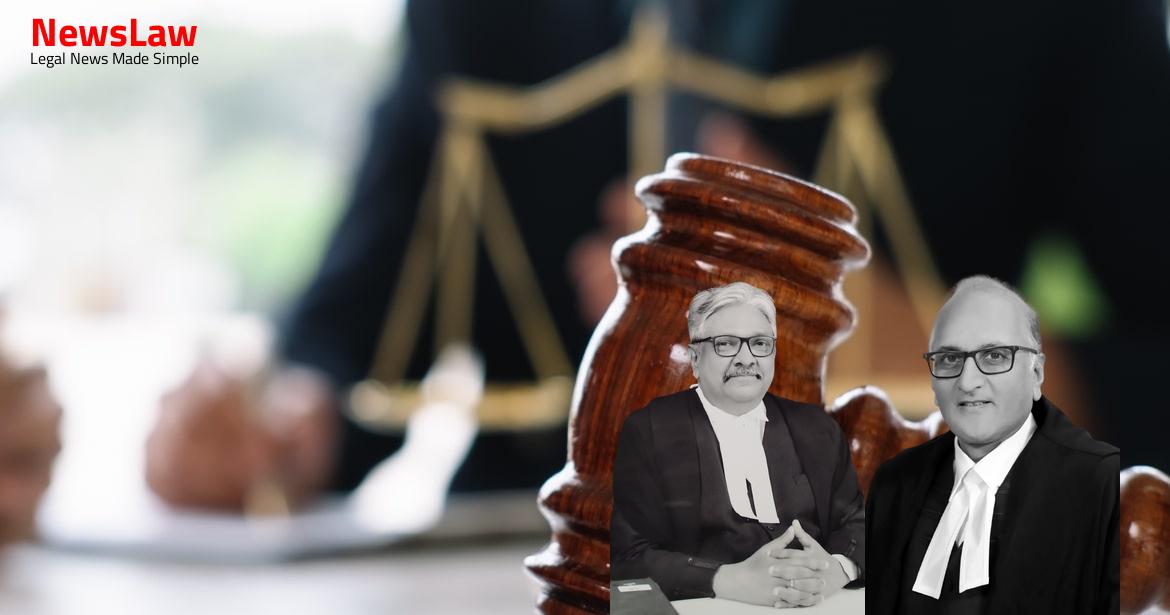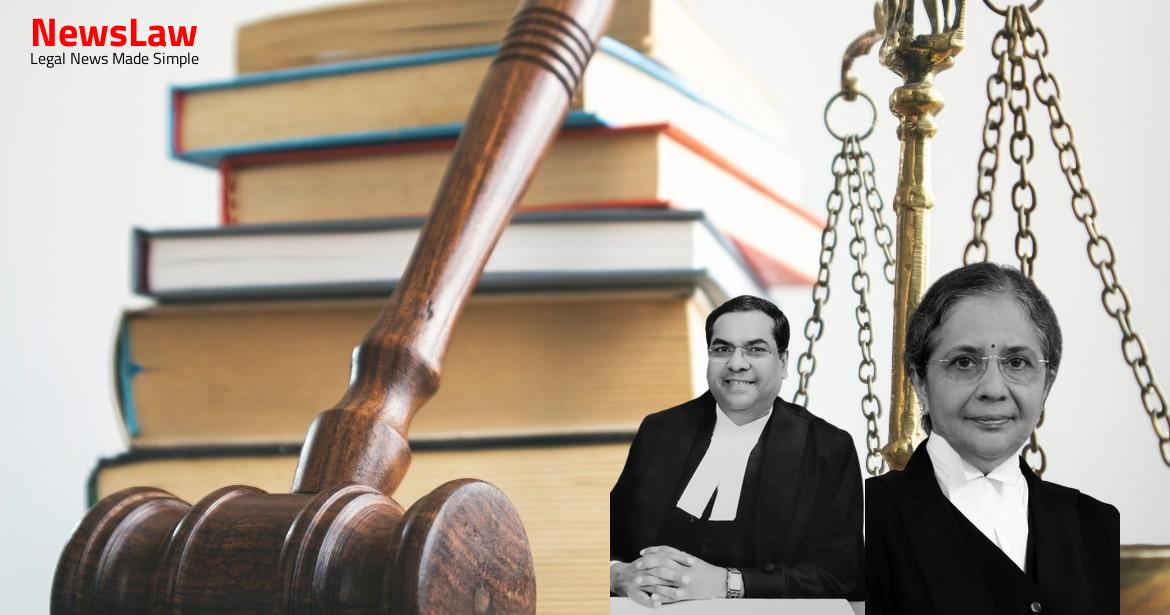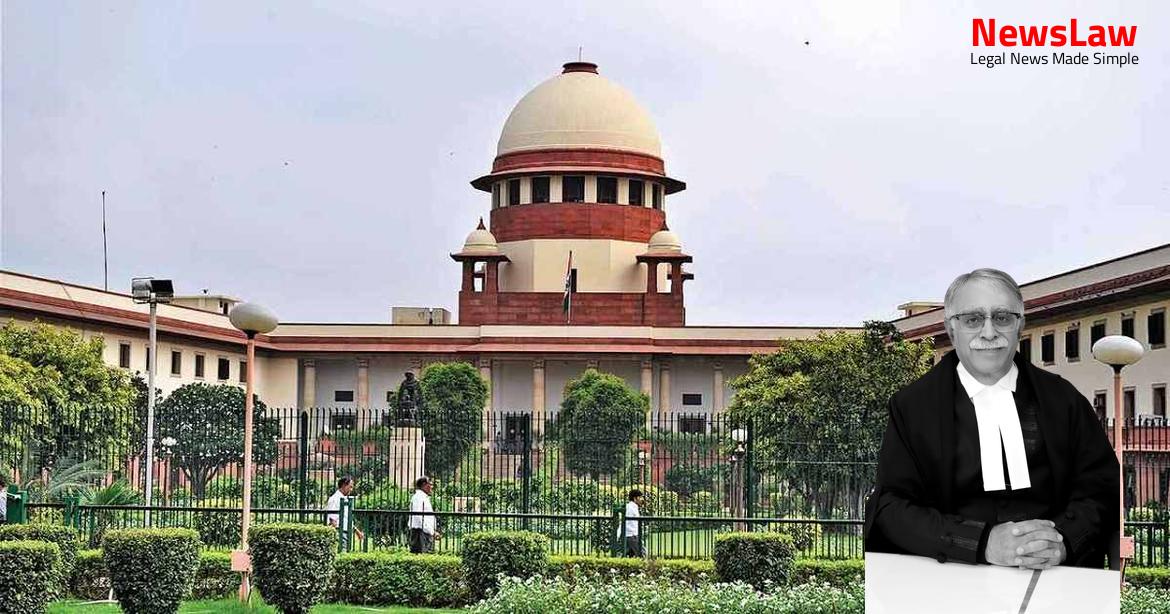In a recent legal case, the court delves into the intricacies of applying judicial discretion to determine the sufficiency of grounds for proceeding against the accused. The analysis focuses on the evidence presented before the court and the standards required to establish a prima facie case. This summary sheds light on the court’s meticulous evaluation of the material on record to decide on the framing of charges, emphasizing the need for solid grounds beyond mere suspicion in cases involving conspiracy or financial irregularities.
Facts
- The prosecution alleged that Uttamchand was a close associate and financer of A-1 and his family.
- The sale deed of a property was seized from Uttamchand, who was a close associate of A-1.
- Uttamchand was accused of rendering active assistance to A-1 in acquiring assets in his name, his wife’s name, and in the name of the Company.
- The delay in filing the petition was sought to be condoned due to several administrative reasons.
- The CBI alleged that Uttamchand committed offences under Section 120B, Section 109 of IPC, and Section 13(2) read with Section 13(1)(e) of PCA.
- The amount for the purchase of a property in Chennai was transferred through cheques from A-6 to M/s. Raviteja Trading Company Pvt. Ltd., Hyderabad.
- Uttamchand’s defense was that possession of the sale deed alone could not make him criminally liable.
- It was asserted that A-2, the wife, was a housewife in this context.
- The trial court rejected the discharge application of Uttamchand under Section 239 of CrPC.
- High Court concluded that possession of the sale deed witnessed by Uttamchand’s employee did not incriminate him.
- Uttamchand was accused of assisting A-1 in transferring money to a safe place and financing A-2.
- The purchase of property through the Company, M/s. Raviteja Trading Pvt. Ltd., was a front for A-1.
- High Court found no evidence in the approver’s statements to implicate Uttamchand.
- CBI alleged collusion and criminal conspiracy between Uttamchand and A-1.
- The property was bought through A-1’s friend, P. Srinivas, director of M/s. Tidal Data Solutions, Bangalore.
- High Court accepted Uttamchand Bohra’s arguments.
Also Read: Legal Analysis of Claim for Loss of Profit in Delayed Contract
Arguments
- The Court is not concerned with the probability of truth but whether there is a reasonable suspicion of the accused having committed an offence.
- Uttamchand’s relationship with A-1 and A-2 as a financer does not implicate him in the sale deed belonging to a third party.
- Uttamchand facing trial in an earlier case should not be an incriminating circumstance to join him in the second case against A-1, A-2, and others.
- No allegation against Uttamchand was made in the chargesheet that may amount to an offence under Section 109, IPC.
- The original sale deed purchased by the companies was seized from Uttamchand’s possession.
- The test to determine a prima facie case depends on the facts of each case, as per the Union of India vs Prafulla Kumar Samal & Ors case.
- While exercising jurisdiction under Section 227 of CrPC, the Court must consider the broad probabilities of the case.
- The High Court correctly held that mere presence of the sale deed in the respondent’s residence and other allegations did not constitute the offences charged against him.
- The allegations against Uttamchand in the charge-sheet did not constitute the offences for which he was being prosecuted.
- There was no allegation that he received any monetary benefit or profited from A-1’s actions.
- Uttamchand was not a public servant and could not commit an offence under Section 13(1)(e) read with Section 13(2) of the PCA.
- In criminal trials, the test is whether there are sufficient grounds for proceeding, not for conviction, as per Nirmaljit Singh Hoon v. State of West Bengal.
- Prima facie evidence, even if the accused may have a defense, requires the case to be decided by the appropriate forum later.
- Strong suspicion is sufficient for framing charges, as per State of Bihar v. Ramesh Singh.
- The prosecution failed to produce material implicating the respondent in the conspiracy crime prima facie.
- Most witnesses had already deposed but did not incriminate Uttamchand.
- The only other evidence, a co-accused’s confession, was deemed inadmissible by the counsel.
- The High Court was justified in allowing the discharge application as no prima facie case was established against the respondent.
- If two views are equally possible and there is only slight suspicion, the accused can be discharged.
- There was no evidence linking the transaction of the sale of the flat with Uttamchand.
Also Read: Public Declaration Requirement in Marriage under Hindu Marriage Act
Analysis
- The analysis focuses on the evidence presented before the court to determine if there is sufficient ground for proceeding against the accused.
- The Judge is required to sift and weigh the materials on record to decide if there is a prima facie case against the accused.
- The Magistrate inquiring into a case under Section 209 CrPC must come to a conclusion on whether the case is fit for the accused to be committed to the Court of Session.
- The Judge is not to act as a mere post office but to evaluate the evidence and submissions of both the accused and the prosecution.
- The Judge at the initial stage is not to meticulously judge the truth, veracity, and effect of the evidence but to determine if there is a ground for presuming the accused has committed an offence.
- The Magistrate should not conduct a roving inquiry at the Section 227 stage but focus on whether there is sufficient evidence for commitment.
- The evidence must show that the accused’s involvement is beyond mere suspicion and is based on firm ground, especially in cases involving conspiracy or offences under the PCA.
- It is essential for the Judge to apply judicial mind to the material on record and satisfy the commission of the offence by the accused was possible before framing charges.
- The standard of test and judgment applied before recording a finding regarding guilt is different from that used at the Section 227 or 228 stage.
- The material presented should justify the framing of charges against the accused, as mere suspicion or insufficient evidence cannot warrant proceeding with the trial.
- In State of J&K v. Sudershan Chakkar, the Court considers only the chargesheet and materials attached to it.
- The respondent Uttamchand cannot be alleged to be part of a conspiracy based on the material presented.
- In Deepak Surana v. State of M.P., if there are insufficient grounds to proceed against the accused, the judge must discharge the accused.
- P. Nallammal v. State highlights the criteria for crystallizing an offense involving disproportionate assets and inability to account for them.
- In Central Bureau of Investigation v. K. Narayana Rao, principles for discharging the accused under Section 227 of the Code were summarized.
- Judicial discretion is crucial in determining whether a trial case has been made out by the prosecution.
- The sufficiency of grounds considers the nature of evidence and documents that show suspicious circumstances.
- Respondent has no links with M/s Raviteja Trading Co. Pvt. Ltd.
- No material to support inference of Uttamchand being a conspirator or abetting offences
- Appeal lacks merit and is dismissed with no costs
Also Read: OCI Cardholders’ Rights and Retroactive Notifications
Decision
- The application is allowed
- The delay in filing the petition is condoned
Case Title: THE STATE BY S.P. THROUGH THE SPE CBI Vs. UTTAMCHAND BOHRA (2021 INSC 855)
Case Number: Crl.A. No.-001590-001590 / 2021



